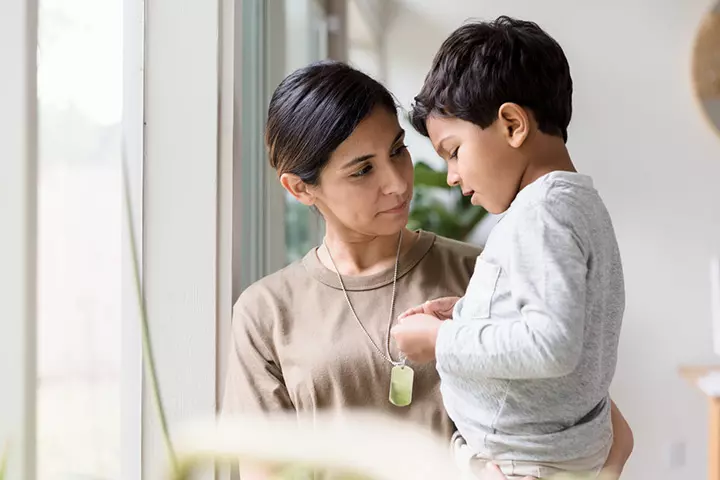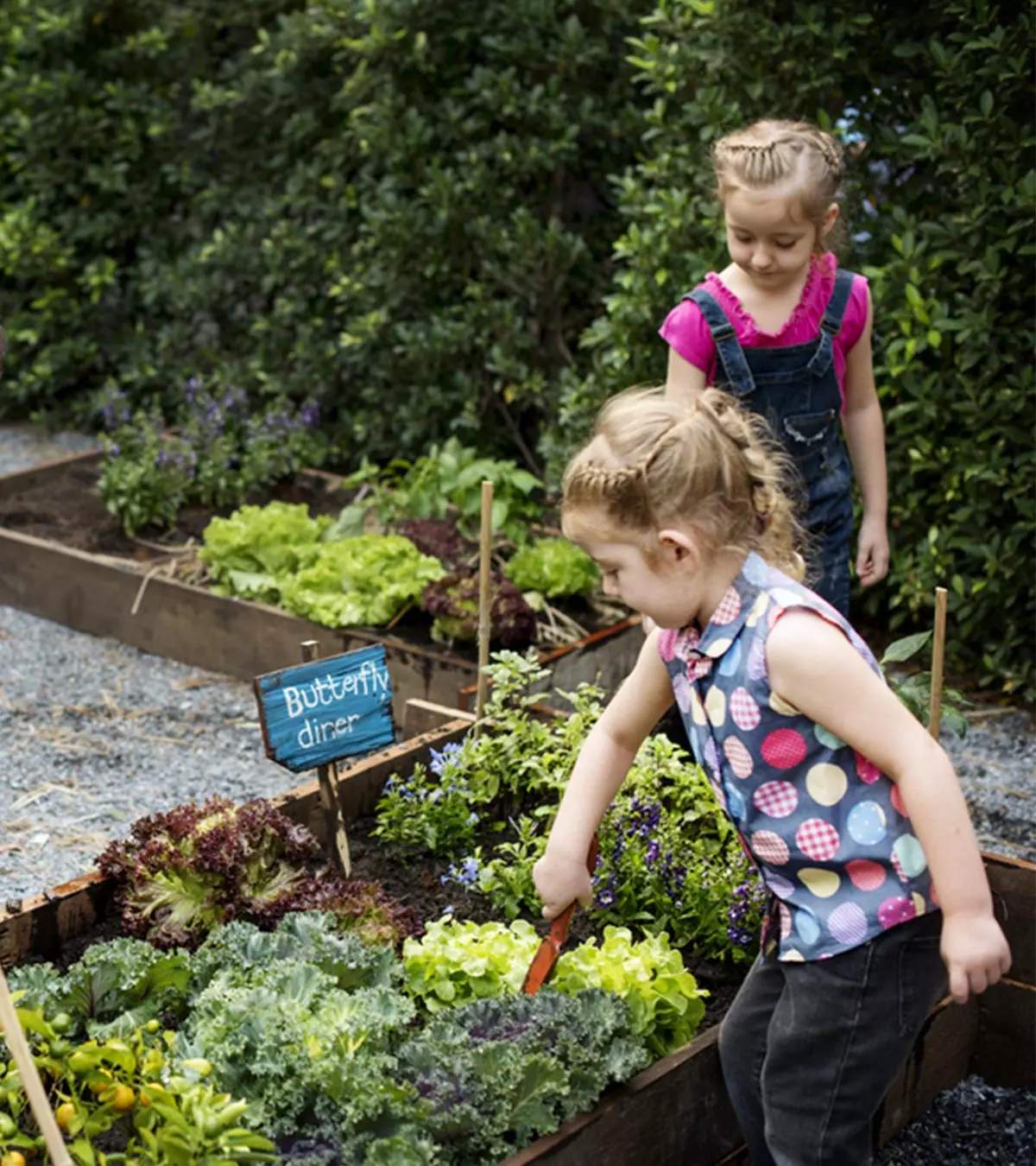

Image: Shutterstock

The health of any relationship is based on good communication. And this is all the more important between people with a generation gap: parents and children. Children today are articulate. The vast expanse of information they absorb each day helps them understand the world better. However, in a fast-paced, chaotic world that also invites frustrations and disappointments, parents must have a loving and affectionate relationship with their children. And that happens with seamless communication.
Discord between parents, a painful separation or divorce, or just a general difference of opinion can sour a healthy relationship. It can also make it hard for children to trust their parents and open up to them to seek help and support. Knowing what and how to talk to your child can make a world of difference to them. To improve your relationship with your child and help them navigate through a demanding academic and social world with good communication, here are six strategies you can adopt:
1. Understand Their Communication Style
Image: Shutterstock
You may have heard of attachment styles, but communication styles also exist. Yes, not everyone communicates the same way. Some like chatting about everything under the sun, while others keep it simple and only reserved for times when really required. But whatever the style they are naturally inclined to, it’s good to instil in them the confidence that they can approach you for anything. And this starts with understanding the best ways to interact with them, suited to mutual comfort and convenience. You or your child may not be talkative, but it’s essential to make it a point to subtly encourage them to open up to you by following their unique communication styles.
2. Communicate In Between Leisurely Activities
Image: Shutterstock
As busy as you are, your children’s schedules can also look a bit far stretched with school, homework, extra-curricular activities, or simply hanging out with their friends. You can also plan to communicate with your kid in between even the most trivial or mundane moments. This could be while making breakfast, getting them ready for school, at the dinner table, or even while you take the pet out together for a walk. Just about any time is ideal if the situation and your state of mind allow it, and only a few minutes of your dedicated time can drastically improve the relationship you share with your child. So, make consistent efforts to catch up with them whenever you can.
Image: IStock
It’s immensely beneficial to pay close attention to what your child shares with you. Practice the skill of listening patiently without showing the desperation to cut them off, nag, or impose your idea of what is ideal upon them. Pay undivided attention to them and acknowledge what they say by looking them in the eye, keeping your phone away, nodding your head when they put forward a valid point. Observe their body language and see if they are nervous or scared. It can tell you so much about their mental state and even things they are passionate about. Make them comfortable and showcase empathy in your tone. When it’s your turn to speak, reiterate what you heard so that they know you remember what they told you. Sometimes, what children share could be a matter of grave concern; if you observe carefully, you could find them indirectly hinting at information that deserves your attention.
4. Practice Storytelling
Image: IStock
Children love to listen to stories. They remember information better when presented to them in an easier way, one they can create a mental picture of. When you cook up fictional characters to drive home a message to your child, it’s easier to help them relate to and understand your side of the story. Also, talk about your life stories when you present an opinion or thought to them. They’ll discover things about you in the process, perhaps those that they wouldn’t have known earlier. Yes, they may interrupt and flood you with questions or showcase no reaction at all but know that these questions are good conversation starters with your child. Storytelling will give you chances to get to know them better and vice versa.
5. Build Their Emotional Literacy
Image: IStock
Never teach your kids to stop displaying their emotions just because it is a norm for a specific gender to behave a certain way. Yes, boys can cry, and girls can express their frustrations too. Help your child label their emotions to understand them, discuss what they feel without the fear of judgment or being punished for committing a mistake. Accept how they feel lovingly and help them recognize others’ pain and happiness. The best you could do as a parent is to identify and discuss feelings to foster emotional literacy. It will build their strength to manage and make sense of their emotional experiences.
6. Practice Patience When Things Don’t Go As Planned
Image: IStock
Parenting is no easy task and communicating with your little ones can be a tough task at times. Oftentimes, your children won’t do as you wish and this can really frustrate you. But you have to bear in mind that in their growing phase, children explore things and at times prefer to navigate the world on their own. As a parent, you definitely need to guide and support your child but also give them enough freedom to discover things on their own. Even in the case where your child is rebellious and you have a tough time making them do things, patience is the only thing that will help you in making them do it.
With time a greater degree of openness will blossom in your relationship. However, it would be good to know that this isn’t an overnight process, and many times your conversations with your child could seem like a monologue. But don’t feel discouraged, as making consistent efforts is essential. Most importantly, keep it to yourself when your child shares something personal and meant to be between you and them. They’ll confide in you with confidence. So, what steps did you take to build good communication with your child? Do share your tips with us in the comments section below!
Community Experiences
Join the conversation and become a part of our nurturing community! Share your stories, experiences, and insights to connect with fellow parents.


















